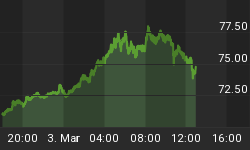Saudi Arabia is now hoping to see billions of dollars pour into their stocks as they are finally added to emerging markets indexes this week, but for investors, this is a very tricky—and very opaque—game to play.
On Monday, the FTSE Russell Emerging Markets Index started adding Saudi stocks to its offerings; and in May, the more enticing MSCI Emerging Markets Index (EEM) will follow suit. Saudi stocks have also been added, this week, to S&P Dow Jones benchmarks.
For the FTSE, the inclusion of Saudi shares will take place in five tranches over the coming 12 months, with the first 25 percent happening over March and April and the finish line being March 2020.
What it means is that investors can dump more money into Saudi Arabia, and right now, foreign investors hold about 5.9 percent of Saudi shares. But while passive buyers (institutional investors) will likely take the bait in the billions, the rest of the investing world will be put off by the opacity, and the high level of risk.
The Saudi stock exchange, Tadawul, says the bump in status to emerging market signals that investor confidence in Saudi Arabia is growing.
The emerging markets status upgrade comes at a time when companies are refusing or even returning Saudi investment money, including the return of a $400-million Saudi investment into a prominent Hollywood entertainment company.
It also comes amid unconfirmed reports that the Saudi king has addressed concerns about lost investments, and (again unconfirmed) rumors that Crown Prince Mohammed bin Salman (MBS) has been stripped of some of his financial and economic powers.
Emerging Markets indexes, however, aren’t concerned with things such as the murder of Saudi journalist and critic, Jamal Khashoggi, the purge of business elite to fill state coffers and fund an overly ambitious Vision 2030, or even the jailing of female activists. All the indexes care about is capital market reform. Related: Putin Signs “Digital Iron Curtain” Into Law
Indeed, FTSE Russell CEO Waqas Samad said that the Saudi inclusion was a significant achievement, noting that “the Capital Market Authority (CMA) and Tadawul have long been committed to improving Saudi Arabia's capital markets infrastructure and today marks a culmination of their efforts to meet the rigorous requirements for inclusion.”
In January, Saudi Arabia unveiled a set of seven investment principles designed to attract foreign investment. Those principles include assurances of equality between Saudi and foreign investors, protection of investments, sustainability, transparency, equal investment incentives, and non-discriminative eligibility criteria.
This came on the heels of government data showing that FDI in Saudi Arabia increased by 127 percent in 2018—despite all that drama and mayhem.
So, what do institutional investors think, when the Saudi sovereign wealth fund (the Public Investment Fund, or PIF) is the biggest investor in the $530-billion Saudi stock market?
According to Bloomberg, citing Arqaam Capital analysts, institutional investors are likely to “take an underweight position in the market, mainly on valuation grounds and potential concerns about government-related entities selling into the event”.
In the meantime, the royal family is spending loads on reputation damage control. It’s latest effort is to announce an investment of $23 billion into making Riyadh more beautiful with green spaces, recreational areas and hundreds of art installations. The project is hoping to create $15 billion in private investment opportunities.
By Fred Dunkley for Safehaven.com

















